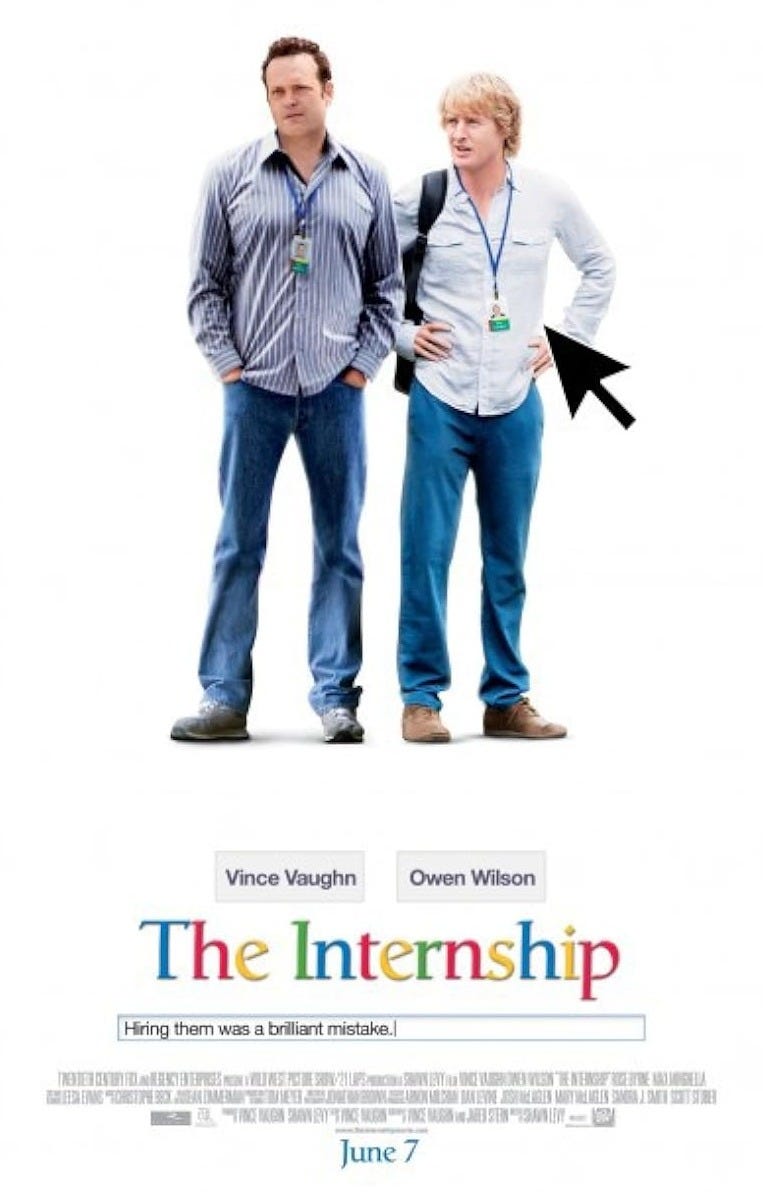How data literacy benefits us all
(+ a curated selection of movie recommendations)
Last week, we discussed what data literacy is, and the opportunity it provides.
This week, I wanted to continue to breakdown of defining data (& AI) literacy, and what benefits it has, across not only the individual, but teams, organisations, and society. Like a cinematic sommelier, I will also provide some movie pairing suggestions - and would be keen to hear your recommendations in the comments below!
This week lets focus on how data literacy benefits the individual.
The discourse around data literacy is often focused on businesses and their ability to ‘harness the power of data’ or some other mantra that compares data to oil, gold or uranium. However, this is a myopic view of data literacy, when in reality, everyone would benefit from data literacy every day.
In real life, individuals who are data literate can apply these skills to various aspects of their personal and professional lives, from managing finances to advancing their careers.
Enhanced confidence
The world of data and AI is clogged with jargon, either through re-purposing of common terms, or words that I’m certain were created at 2am in an energy-drink fueled haze.
Jargon is used as a shortcut to explain a concept, but it is also used to quickly establish group membership, like a vocabulary of passwords. I use <this term>, so that you and I know both know that we are on the ‘inside’, and anyone who doesn’t understand isn’t part of our group.
As an example, overheard during a meeting a few years ago:
“Urgh, If I hear one more person describe metadata as ‘data about data’ I’ll scream”
Now yes, technically metadata may have a much more nuanced and technical definition, but for most people being able to understand that metadata is explaining or giving information about the data in question, is more than sufficient. But for those meeting attendees that were overheard, it appears that simplifying or generalising the term to be more inclusive was somehow interpreted as a threat, or an annoyance.
It’s really easy to get overwhelmed and intimidated by the jargon and terms that are thrown around in data & AI circles, when in reality, by increasing data literacy, you break down these barriers of the gated communities of the data & AI space, and often the terms can easily be explained, contextualised or substituted by more accessible and inclusive language.
You’ll also develop greater confidence on when and where data should be used, and perhaps where it shouldn’t.
Suggested movie pairing:
Two salesmen whose careers have been torpedoed by the digital age find their way into a coveted internship at Google, where they must compete with a group of young, tech-savvy geniuses for a shot at employment.
This is a (somewhat dated) example of the jargon-barrier that tech often entails.
Enhanced decision making
Growing knowledge of how and when data can be used, and what data is available to help inform decision making, will make you a better decision maker. Having greater confidence in querying if the initial insights are telling you what they appear, what data could support or challenge this, and has the data been used correctly.
Increasing data literacy enables you to be able to understand the data lifecycle, including
Collecting relevant data
Understanding bias
Using correct decision-making processes
Interpreting the data correctly
Communicating the decision effectively
This can apply to deciding things like what university to apply for, what to buy a niece for Christmas, or the most difficult of decisions… where to go for dinner with friends.
Suggested movie & book pairing:
Inspired by real events and people, 21 is about six MIT students who become trained to be experts in card counting in blackjack and subsequently took Vegas casinos for millions in winnings. Based on the book Bringing Down the House by Ben Mezrich.
This is definitely a movie about using data and statistics to make decisions.
Nate Silver recent book On the Edge discusses decision making in relation to everyday decisions and risk aversion.
Career Advancement
Data literacy unlocks new opportunities. Data is a universal skillset, that is applicable to every organisation. No matter the size, shape, function or purpose, every company is now a data company (some even promote being ‘data-driven’, ‘AI-first’, ‘we’re a data company that just happens to also sell shoes’).
By increasing your data knowledge, your career options open, as you can use data to either identify new opportunities, to transfer your skills across business units, domains or industries.
Depending on the benchmarks used (or which data platform paid for the survey to be conducted to show their product’s success) some industries are more mature with their data than others, including technology (for obvious reasons), financial services, FMCG etc. however being data literate allows you to find new opportunities or to be the superstar and drive your company’s data adoption, no matter the industry.
Suggested movie pairing:
Will Hunting, a janitor at MIT, (passionate about apples and how much they are liked) has a gift for mathematics, but needs help from a psychologist to find direction in his life.
Or for another take on this dynamic, I recommend Community Season 1 Episode 24: English as a Second Language.
And more…
These are just a few of the benefits for individuals to become more data literate. One final thought is the world (thanks to AI, and companies focus on driving value from every iota of data they can access), is increasingly being decided by data.
This is not only for important things like movie or show recommendations, but decisions that directly affect you around healthcare, laws, and elections1. Arming yourself with more knowledge about how these decisions are made, and how your data is involved, better prepares and informs you to be part of these conversations, as opposed to a bystander who feels they are unable to speak up because they don’t know the password.
To be data literate enables you to be a conscientious and informed.
Next week, we’ll focus on how teams can leverage data literacy to improve their performance, collaborate better, and spark innovation.
Question this week: What are some of your favourite data-related movies that you’d like me to feature in an upcoming post?
If you’d like to share this with your colleagues or friends, I would be eternally grateful, as I’d like to make this conversation as diverse and engaging as possible.
Thank you for joining me in this exploration of data & AI from what (I hope) is perhaps a slightly different perspective than you may usually hear from.
Yours in data,
Neil
For a non-partisan tool for the upcoming Australian Federal election, I wanted to highlight a great tool Build a Ballot - Get election ready.





Hidden Figures - the movie. Epic.